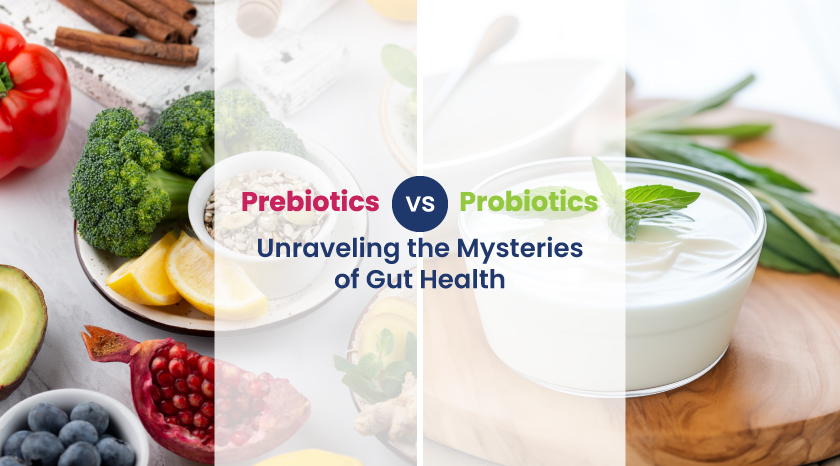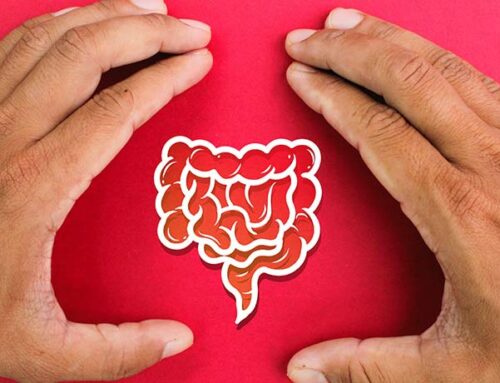In the quest for optimal gut health, the terms “probiotics” and “prebiotics” are frequently mentioned—but what exactly are they, and how do they differ? In this blog, we’ll unravel the mysteries of probiotics and prebiotics, exploring their similarities, differences, and the vital roles they play in nurturing a healthy gut microbiome.
- Probiotics: The Friendly Bacteria Within Probiotics are living microorganisms—typically bacteria or yeast—that confer health benefits when consumed in adequate amounts. These beneficial bacteria colonize the gut and support various aspects of health, including digestion, immune function, and even mental well-being. Common strains of probiotics include Lactobacillus, Bifidobacterium, and Saccharomyces, which can be found in fermented foods like yogurt, kefir, sauerkraut, and kimchi, as well as in supplement form.
- Prebiotics: Fuel for Your Gut Microbiome Prebiotics, on the other hand, are non-digestible fibers that serve as food for beneficial bacteria in the gut. While probiotics introduce beneficial bacteria into the gut, prebiotics nourish and support the growth of these bacteria, helping them thrive and multiply. Common prebiotic fibers include inulin, fructooligosaccharides (FOS), galactooligosaccharides (GOS), and resistant starch, which are found in foods like onions, garlic, bananas, oats, and legumes.
- Similarities: Nurturing Gut Health Despite their distinct roles, probiotics and prebiotics share a common goal: promoting a healthy gut microbiome. Both work synergistically to support microbial balance, enhance digestion, and bolster immune function. Probiotics introduce beneficial bacteria into the gut, while prebiotics provide the fuel these bacteria need to thrive, creating an environment conducive to optimal gut health.
- Differences: Mechanisms of Action While probiotics and prebiotics work hand in hand to support gut health, their mechanisms of action differ. Probiotics directly introduce beneficial bacteria into the gut, where they colonize and exert their health-promoting effects. Prebiotics, on the other hand, indirectly support gut health by nourishing existing beneficial bacteria, encouraging their growth and activity.
- Synergy: Maximizing Gut Health Benefits The true magic of gut health lies in the synergy between probiotics and prebiotics. When consumed together—either through food or supplements—probiotics and prebiotics form a powerful symbiotic relationship that maximizes their health benefits. By combining probiotics with prebiotic-rich foods or supplements, you can effectively nurture a diverse and balanced gut microbiome, supporting digestive wellness, immune resilience, and overall health and vitality.
Probiotics and prebiotics are essential players in the quest for optimal gut health. While probiotics introduce beneficial bacteria into the gut, prebiotics provide the nourishment these bacteria need to thrive. Together, they form a dynamic duo that supports microbial balance, enhances digestion, and boosts immune function. By incorporating probiotic-rich foods and prebiotic fibers into your diet, you can nourish your gut microbiome and unlock the key to vibrant health and well-being.




